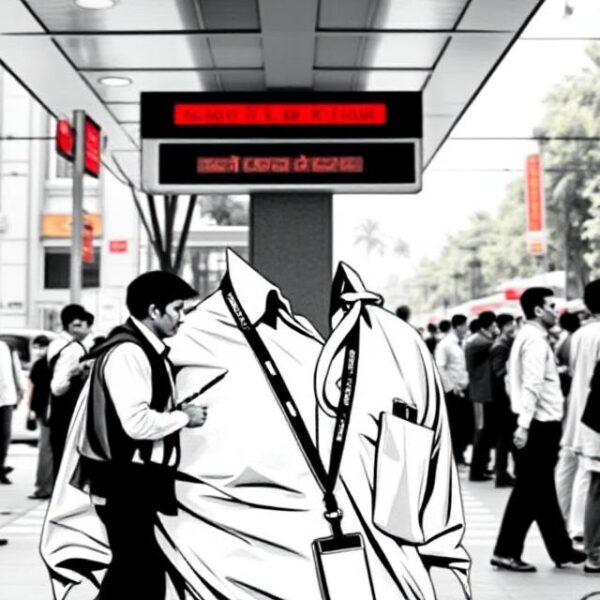News
Central Staff in Line for 34% Hike; Timing Fuels Pre-Poll Debate

In a decision with both economic and political resonance, the Union Cabinet on Tuesday approved the Terms of Reference (ToR) for the 8th Central Pay Commission (CPC) — a move that could result in a 30–34% salary and pension hike for over 49 lakh central government employees and 65 lakh pensioners.
Coming barely a week before the Bihar Assembly elections, the announcement is being widely viewed as a calibrated political signal aimed at boosting morale among government employees and retirees, a group that has traditionally influenced middle-class and urban voting behaviour across several states.
The Cabinet meeting, chaired by Prime Minister Narendra Modi, cleared the ToR outlining the mandate for the commission, which will recommend revised pay structures, allowances, and pensions for central staff. The 8th CPC will be a temporary body with a Chairperson, one Part-Time Member, and a Member-Secretary, and is expected to submit its report within 18 months of its constitution.
Political Timing Ahead of Bihar Polls
While government sources insisted the decision follows a routine ten-year cycle — the 7th Pay Commission was implemented in 2016 — the timing has raised eyebrows. The first phase of Bihar’s election is on November 6, and the second on November 11, with results due on November 14.
With over five million government employees and retirees in Bihar alone (including central, state, and public sector workers), the move could resonate politically in a state where inflation, wages, and employment are top election issues.
Opposition leaders in the Mahagathbandhan (RJD-Congress alliance) accused the government of playing to the gallery. “This is a pre-poll sweetener timed for headlines, not the exchequer,” an RJD spokesperson said, alleging that similar pre-election announcements had been made before the 2019 Lok Sabha and 2020 Bihar polls.
However, BJP officials defended the move, arguing that the decision had been in process since January, when the formation of the 8th CPC was first announced. “We are following the schedule of previous pay commissions. This is about employee welfare, not politics,” a senior party functionary said.
What the 8th Pay Commission Means
The 8th CPC’s mandate includes reviewing salaries, allowances, and retirement benefits, keeping in mind economic conditions, fiscal prudence, and the financial impact on states, which often adopt the recommendations. It will also compare emoluments with Central Public Sector Undertakings (CPSUs) and the private sector.
Officials expect the new pay structure to deliver an average 30–34% pay hike, up from the 14% increase under the 7th CPC. The revision will be driven by a fitment factor — a multiplier applied to basic pay — likely to range between 1.83 and 2.86, compared to 2.57 last time.
If accepted, the minimum basic pay could rise from ₹18,000 to about ₹41,000, while senior officers (Pay Level 18) may see basic pay jump from ₹2.5 lakh to nearly ₹6.25 lakh.
The fiscal cost is expected to be between ₹1.75–2 lakh crore annually, a significant outlay that could test the Centre’s commitment to fiscal consolidation. The 2025–26 Budget did not make provisions for the revision, and allocations will follow once the report is finalized.
Key Allowances and Pension Revisions
The new pay commission is also expected to overhaul allowances and pension benefits. The Dearness Allowance (DA), currently at 58%, will merge with the basic pay once the 8th CPC is implemented, resetting DA to zero. House Rent Allowance (HRA) could double in metros, from 27% to as much as 54% of basic pay, while Fixed Medical Allowance (FMA) for pensioners may rise from ₹1,000 to ₹3,000 per month.
The Commission may also explore ways to harmonize the Old Pension Scheme (OPS) and the New Pension System (NPS) to ensure greater retirement security, a politically sensitive subject that has gained traction in several opposition-ruled states.
Economic and Electoral Balancing Act
Economists warn the timing could complicate fiscal management at a time when India faces slowing revenue growth and elevated inflation. “This will be politically popular but fiscally challenging,” said a Delhi-based economist. “The wage hike could boost consumption ahead of the 2026 Union Budget, but it also risks widening the fiscal deficit.”
For the government, however, the political calculus may outweigh the immediate fiscal cost. Public-sector employees form a sizeable and vocal constituency, particularly in north Indian states like Bihar, Uttar Pradesh, and Madhya Pradesh, which together account for a large share of India’s bureaucracy, police, and defence pensioners.
The Road Ahead
The 8th CPC’s recommendations are expected to take effect from January 1, 2026. However, if the process is delayed, the government is likely to grant retrospective arrears to employees. Consultations are currently underway to appoint the Chairperson and Members, with inputs from the Ministries of Defence, Home Affairs, and Personnel & Training.
Unions have welcomed the move but called for speedy constitution of the Commission to ensure timely implementation. “Government employees have waited long enough. We hope this time there won’t be bureaucratic delays,” said a representative of the Confederation of Central Government Employees.
As the election season intensifies, the government’s pay panel decision underscores how economic policy and political timing often converge. For millions of employees, it offers hope of higher wages; for the ruling coalition, it could be a prelude to a broader narrative of “rewarding the backbone of governance” — just in time for Bihar to vote.
